
Toyota Prius Plug-in Hybrid Concept
While literally hundreds of Toyota Prius owners have laid down thousands of dollars (in some cases, tens of thousands) by now for plug-in conversions, Toyota has proceeded slowly.
Now it is showing what it says is the final version of its prototype Toyota Prius Plug-In Hybrid at the Frankfurt Motor Show two weeks hence, one in a flurry of green concepts to be shown there.
At first, for fleets only
But don't get your hopes up of walking into your Toyota dealer next year and placing an order. The plans for this first factory-built plug-in Prius are very modest.
Only about 500 vehicles will be built, so Toyota can gather real-world data on how drivers actually use plug-in hybrids. The first users will be selected commercial fleets; 150 will go to Europe, and the same number to the US market, with first deliveries starting by the end of this year.
Toyota hasn't committed to a date when retail customers will be able to get their hands on a factory plug-in Prius, although 2012 would fit the rough timeline it has discussed in the past.
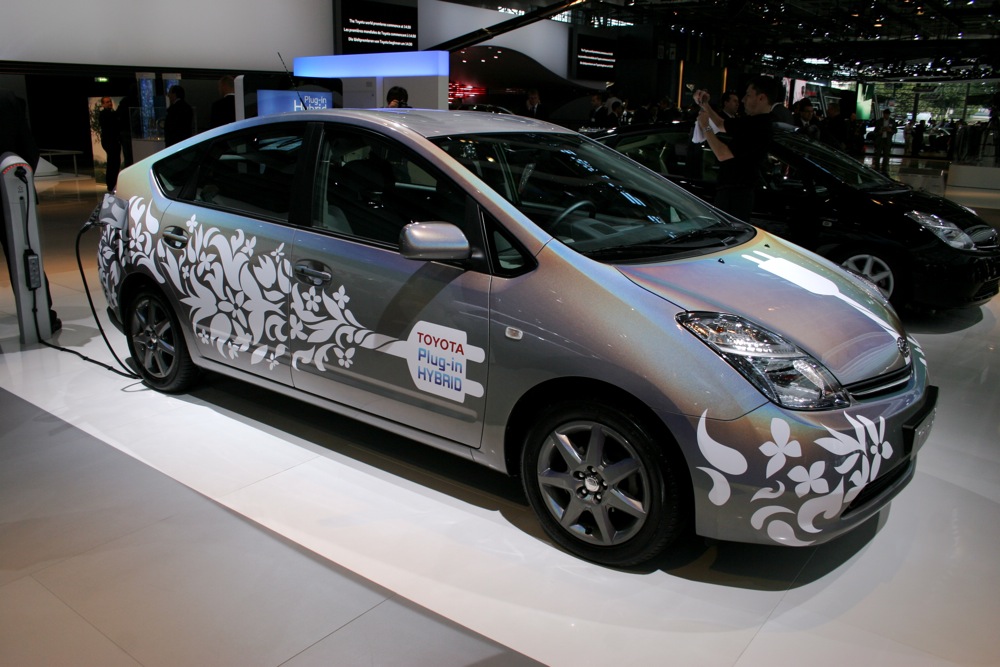
Toyota Prius plug-in hybrid
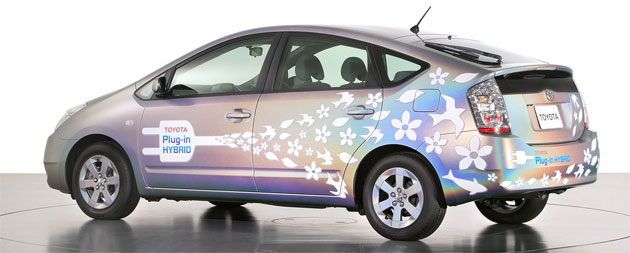
Initial testing of Toyota’s plug-in hybrid system installed in the second-gen Prius has returned fuel-economy figures of 65mpg
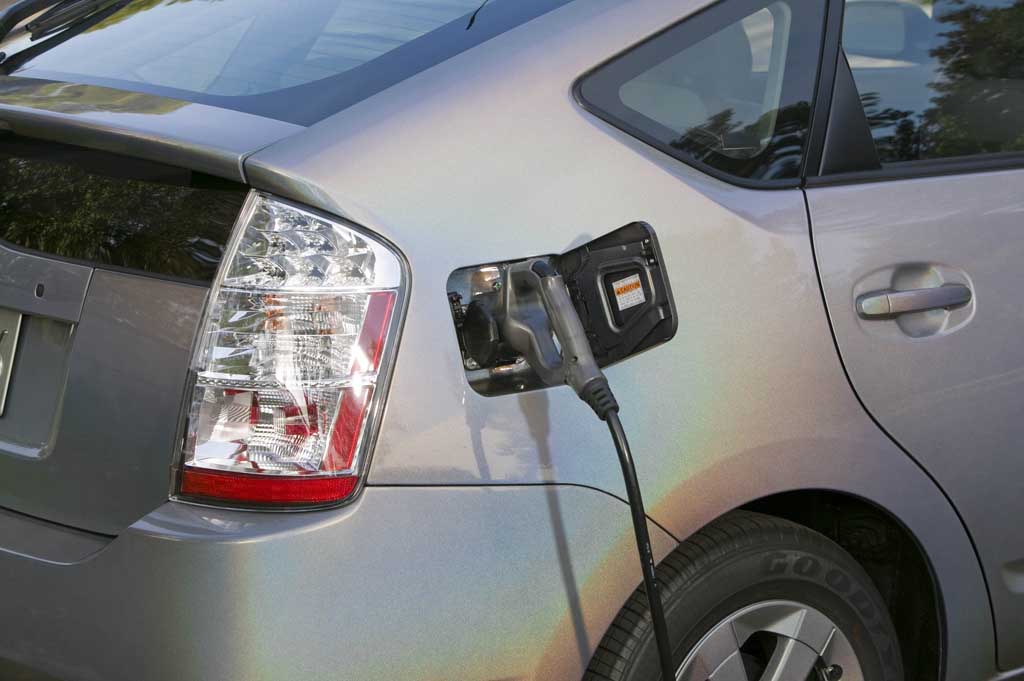
2008 Prius Plug-in Hybrid prototype
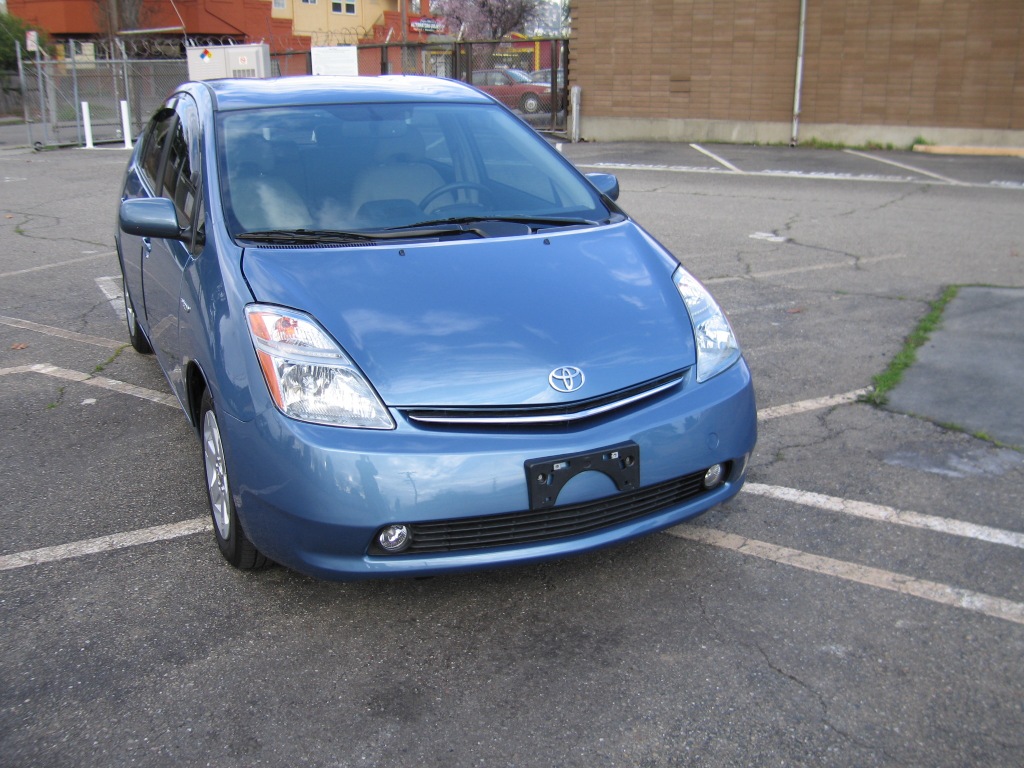
2007 Toyota Prius plug-in Hymotion conversion
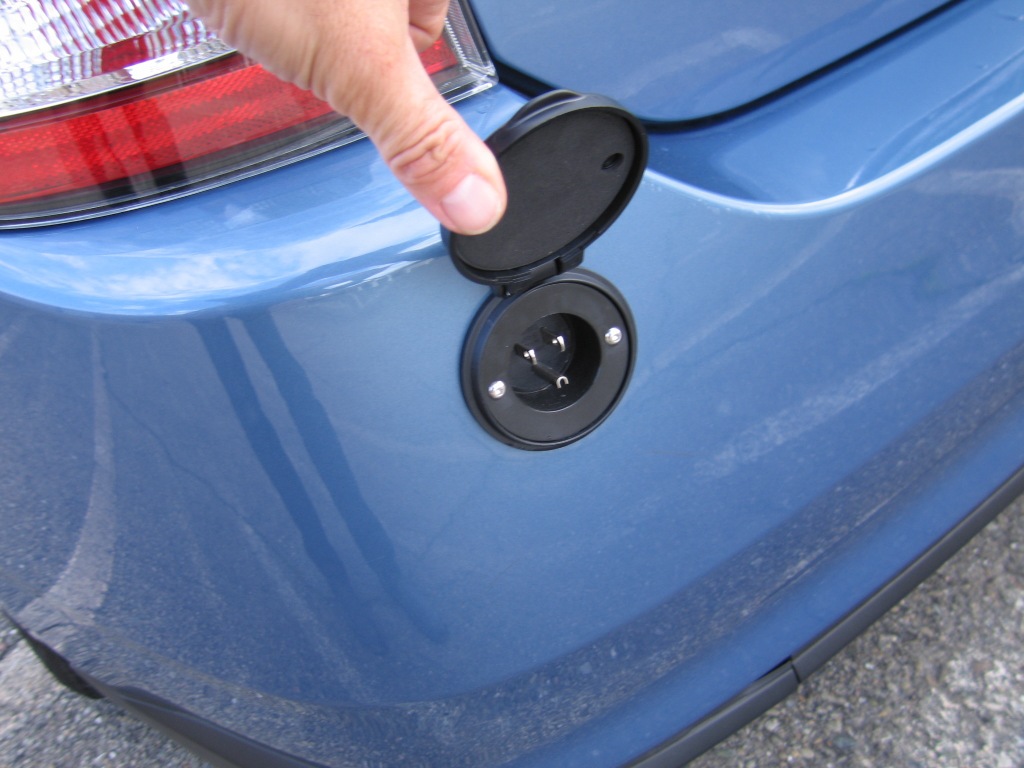
The socket in the bumper shows that this Prius can recharge on grid power
Demonstrated demand for plug-ins
A thriving aftermarket industry exists in converting Priuses to plug-in operation, though it's hardly cheap.
Hymotion and other converters charge from $9,500 to as much as $25,000 for varying degrees of electric range. Thriving forums and groups help owners cobble together their own conversions.
Despite this demonstration of demand, Toyota has been publicly skeptical about hybrids that plug into wall current to recharge their battery packs, saying they're not yet ready for consumer use.
Yet with GM pulling out all the publicity stops for its 2011 Chevrolet Volt extended-range electric vehicle, Toyota risks looking like it's falling behind in the green-car race. Hence, a cautious test of a few hundred plug-in Prius models.
The model to be displayed in Frankfurt, we should point out, is the first one Toyota has shown using the new, 2010 Toyota Prius as a base. Previous plug-in prototypes used the 2004-2009 Prius instead.
Bigger, better battery pack
The main difference between the Prius Plug-In and a standard 2010 Toyota Prius is in the battery pack.
It uses higher-energy lithium-ion cells, rather than the nickel-metal-hydride cells fitted to all Prius models since 1997 (in Japan) and 2000 (for the US).
But unlike "series hybrids," including the 2011 Volt and 2010 Fisker Karma, the Plug-In Prius doesn't necessarily run all in electric mode until the pack is depleted before turning on its engine.
Instead, the Toyota Prius Plug-In Hybrid retains the ability to switch the engine on and off as needed, while boosting the range and speed of the car's all-electric mode.
Up to 12 miles on electricity
Toyota cites speeds up to 60 miles per hour on electricity, and a range as high as 12 miles, but those two probably can't occur simultaneously.
There are many so-called duty cycles, or uses, where the Prius Plug-In will likely run no differently than today's standard 2010 Prius. One such scenario: a cold day, a full load, and a lengthy uphill section of the Interstate at 75 mph.
Still, Toyota has the unique distinction of having built more than half the hybrids in the world today. Given its experience with hybrid technology, anything it does with plug-ins bears watching.
The Prius Plug-In is sure to attract its share of attention on the stand at Frankfurt. And as more news emerges, we'll keep you posted here at AllAboutPrius.com.













